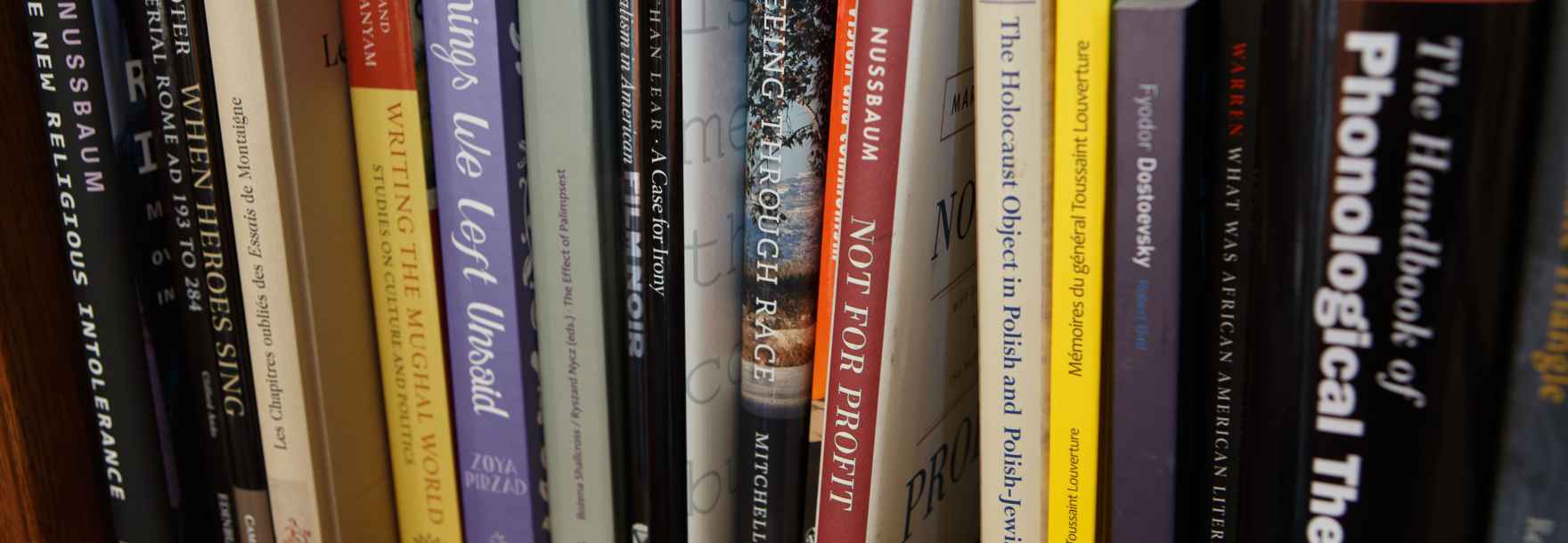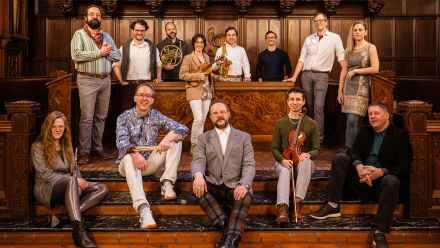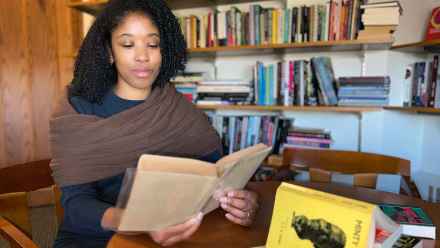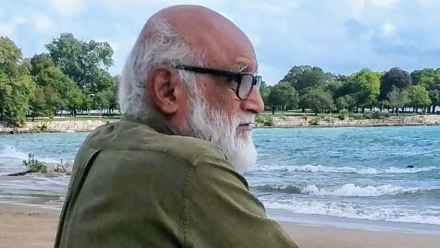
Stuart M. Tave, distinguished scholar of British literature and ‘amiable humorist,’ 1923-2026
Former dean of the Humanities Division remembered for his gentle kindness, skill with words and shrewd sense of humor
MacArthur Foundation supports UChicago initiative to explore future of the humanities
Neubauer Collegium project to articulate value of humanistic scholarship and teaching in higher education and society.
Arts & Humanities Day 2025 sparks citywide conversation
Event brought UChicago scholars together with visiting artists to explore the art and ideas that are central to our lives.
Theaster Gates redeems discarded materials in Smart Museum’s ‘Unto Thee’
Objects spanning UChicago’s history take new form in renowned artist’s first solo Chicago exhibition.
PhD student Naomi Harris publishes three new Hittite poems in The Paris Review
The Middle Eastern Studies & Comparative Literature PhD student transforms fragments of the world’s oldest Indo-European language into living verse.
Grossman Ensemble honored by Library of Congress invitation
On November 15, the Grossman Ensemble will perform in the Library of Congress’s famed Coolidge Auditorium—a rare distinction that recognizes the Ensemble’s meticulous artistry and innovative model for creating new music. The performance will launch the group’s national tour and marks a milestone for one of Chicago’s leading cultural voices.
English faculty Kaneesha Parsard traces an alternative ending to Minty Alley by C.L.R. James
For Parsard, the story of the famed Caribbean author’s politics and Trinidad’s path to independence begins in the archives.
Josephine McDonagh, Professor of English, elected to the British Academy
Arts & Humanities scholar honored with the UK’s highest distinctions in the humanities and social sciences, recognizing scholarship that advances knowledge across continents and disciplines.
Hexacago Health Academy marks ten years of game design education
With research-backed learning tools and serious fun, UChicago faculty and South Side students transform public health education through games.
C.M. Naim, pioneer of Urdu studies and beloved mentor, 1936–2025
Choudhri Mohammed Naim, better known as C.M. Naim, passed away in Hyde Park, Chicago, on July 9, 2025. Naim—called Naim Sahib by his students and colleagues, using the Urdu honorific—was 89. An emeritus professor in the Department of South Asian Languages & Civilizations (SALC), which he first joined more than 60 years ago before retiring in 2001, Naim was a prolific author, cultural critic, and mentor to many across his long career, and widely regarded as the founder of Urdu studies in North America.









